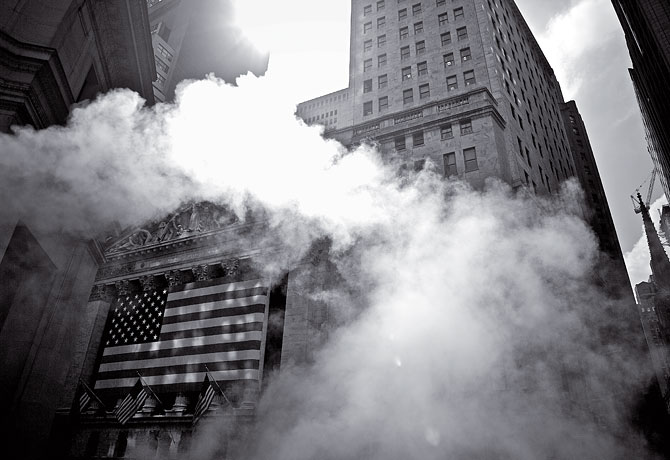
Losing steam
The financial crisis has challenged the capitalist myths justifying Wall Street's wealth and clout
(2 of 3)
The uncertainty about the rebound is complicating the single most pressing issue facing policymakers today: when and how to exit from the stimulus measures governments employed during the downturn. Getting this wrong could be disastrous. Pulling back too soon, before the private sector has regained its muscle, could lead economies to tumble back into recession. Waiting too long risks fueling inflation or asset-price bubbles that could burst down the line. Making matters more complex are the divergent ways in which economies are emerging from the recession. China, worried about inflation and a property bubble, has already begun scaling back its easy-money policies, while Japan, where the main concern is deflation, may require even easier money. Australia has hiked its benchmark interest rate three times, while the U.S. is mulling a second stimulus package.
Whatever the underlying conditions of the world economy, the stimulus will have to end at some point. When that's done, attention will surely turn to the rapidly deteriorating position of public finances, as governments struggle to fund bank bailouts and stimulus programs even as the recession eats into tax revenues. From Greece to the U.S., from Britain to Spain, economies face years of fiscal deficits, the unwinding of which will just add to the sense that the recovery from the Great Recession will be long and slow. We are not over this yet.
Paradigm Shift
A purely economic analysis of the nature of the crisis and the recovery from it is, however, only part of the story. Just as important for the future is a change in the context in which the global economy is discussed.
It is now more than 20 years since Tom Wolfe coined the phrase masters of the universe for the Wall Street wizards he celebrated and satirized in his novel The Bonfire of the Vanities and Michael Lewis detailed the workings of the Street (to those for whom they had been a mystery) in his nonfiction book Liar's Poker. For all that time, the global economy has been shaped by a set of coherent behaviors and beliefs about the virtues of financial capitalism — among them the ideas that markets efficiently price risk; that innovation in financial markets benefits the broader economy and indeed makes it more stable rather than more prone to crisis; that light-touch regulation of such markets is best; and, not least, that those economies that pursue such policies will prosper more than those that do not. Along the way, the financial-services industry became the defining sector of modern capitalism, appropriating an extraordinary proportion of available high-powered human capital — and making many of those who worked in the industry not just rich beyond the dreams of avarice but the heroes of the age.
This worldview has been challenged by the financial crisis and the Great Recession. In the past few years, a series of academic papers and books — one of the most rightfully praised being The Myth of the Rational Market, by TIME contributor Justin Fox — have punctured the intellectual basis on which the explosion of the financial-services industry's innovations rested. But more than that, in recent months, policymakers have cast doubt on the central justification for financial capitalism: the belief that it assists those who work in what used to be called the "real" economy, not just those lucky enough to work for investment banks.
The trend began with a remarkable roundtable interview that the British magazine Prospect conducted last August with Adair Turner, the chairman of Britain's Financial Services Authority. Turner noted that the financial crisis of 2008 amounted to "a fairly complete train wreck of a predominant theory of economics and finance" — the idea that, as he put it, "more markets are always better." Beyond that, Turner went on to challenge the very idea that 20 years of innovation in finance — securitization, derivatives and the alphabet soup of securities that turned out to either be riskier than thought or have no liquid markets — had done the world much good. "The fact that the financial-services sector can grow to be larger than is socially optimal," said Turner, "is a key insight." And if you missed the point, he continued with the observation that some financial innovation amounted to nothing more than "socially useless activity." Where Turner led, Paul Volcker, the revered chairman of the Fed from 1979 to 1987, was quick to follow. "I wish somebody would give me some shred of evidence linking financial innovation with a benefit to the economy," he stated at a Wall Street Journal conference in November, going on to say that his favorite such innovation of the past 25 years was not a CDO or a junk bond but the humble ATM.